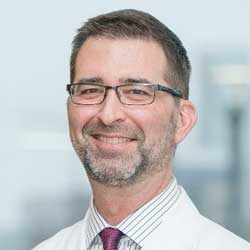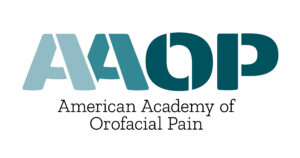AAOP Member Spotlight
AAOP Member Spotlight
The AAOP spotlight highlights our members’ achievements, contributions, expertise,
and personal journey. We recognizes and appreciate our members’ accomplishments,
ability to inspire others, and strengthen the sense of community within our organization

June 2024
Steven D. Bender DDS
Texas A&M University School of Dentistry
Dr. Bender is a Clinical Associate Professor at Texas A&M School of Dentistry in Dallas Texas and serves as the director of the Clinical Center for Facial Pain and Sleep Medicine. He is a Diplomate of the American Board of Orofacial Pain and has earned Fellowships in the American Academy of Orofacial Pain, the American Headache Society, and the American College of Dentists.
He earned his Doctor of Dental Surgery degree from Baylor College of Dentistry in Dallas, Texas in 1986 and studied orofacial pain and temporomandibular disorders at the Parker E Mahan Facial Pain Center at the University of Florida College of Dentistry, Gainesville Florida from 1998 to 2000. Since that time, his practice has been limited to the diagnosis and management of orofacial pain and sleep disorders. In 2024, Dr. Bender was appointed as an Associate Editor of CRANIO® The Journal of Craniomandibular & Sleep Practice.
Q&A with Dr. Bender
How did you get interested in the field of Orofacial Pain?
I grew up with migraine and then developed a TMD in high school. I got hit on the chin by another player’s helmet during tackling drills and had problems ever since! The TMD and migraines got significantly worse in dental school; stress maybe?! Interestingly, we had a dental anesthesiologist named Dr. Steve Milam on faculty while I was in school who saw the ‘pain’ patients. I tried to shadow him whenever possible because what he did fascinated me. I really wasn’t too keen on going to anesthesia school after graduation so I tried to seek out as much CE on TMDs as I could. Most of the courses and continuums that I took involved a heavy emphasis on occlusion and TMDs. I learned to help a lot of people but not everyone was getting better like some of the instructors promised they would! I never knew there was a field of dentistry or training programs that involved head and face pain until approximately 10 years or so after I graduated. I received a flyer in the mail about a continuum at the University of Florida that described sessions covering many of the pain presentations that I experienced personally! I had been a practicing as a general restorative dentist and loved it but meeting and getting to know Dr’s Mahan and Gremillion at the University of Florida made me realize that orofacial pain was the area of dentistry that I was meant to be involved in. They were the best teachers and mentors I could have ever hoped for. Soon after, I sold my restorative practice and transitioned to a full time orofacial pain practice.
How do you feel that the field of Orofacial pain has evolved over the years?
First, it has become a specialty instead of just an area of practice that few people were doing years ago when I started. The number of residency training programs has increased and become more standardized which has led to the graduation of more calibrated practitioners. We tend to speak the same language more than we used to. Another really big change has been the expanded scope of sleep medicine into orofacial pain curriculums and practice. When I first started, we were trained to of course recognize sleep problems, and in some cases prescribe pharmacotherapy but not necessarily get too involved in sleep disordered breathing. We would refer to sleep specialist and, in some cases, to the very few practitioners that were making sleep appliances at the time.
The most challenging and rewarding aspects of caring for patients with Chronic Pain?
The challenge of solving problems is one of my favorite aspects of orofacial pain practice. I also absolutely love being able to provide answers and hope. Many of our patients have been told there is nothing else that can be done for them; they must just learn to live with their pain. While we certainly don’t pretend to cure chronic pains, we do have the knowledge and therapies to in most cases, help people manage their pain or disorder very successfully.
One of the biggest challenges we face is that most in the health care community still are not aware of who we are and what we do. This limits the patients access to the services we can provide. Also, we desperately need more qualified practitioners. There is simply not enough orofacial pain specialist given the number of people who have orofacial pains.
What advice do you have for the members who are starting their carrier in field of Orofacial Pain? Suggest some resources that were helpful to you.
First and foremost, we must always remember what a privilege it is that the patient in our clinic chose us for their care. It may sound cliché, but I encourage our students all the time to treat their patients as if they were family. Try to appreciate their uniqueness, not just the aspects of their pain presentation but in who they are as individuals. Listen as if you are getting to know a new friend.
Also, go to the annual AAOP meetings and get involved. Try to get to know some more established practitioners who you may want to learn from. When I first joined, there were so many members that were so good to me and took a genuine interest in my career and what I wanted to do in the AAOP. My service in the AAOP has been very fulfilling and is something that I am very proud of.
What do you like to do in your free time?
Explain to me what is this “free time” of which you speak!
In all seriousness, I still enjoy reading and studying aspects concerning orofacial pain. However, I do try to carve out more time for family these days. I still love what I do but I’m trying to figure out how to slow down! I have a wonderful wife who has put up with my crazy professional journey for about 42 years now as well as 2 children and 4 grandchildren. I do love playing golf with my son and hope to do that more going forward.
Thank you to all who made our 2024 meeting a success!
We look forward to seeing you in 2025!
49th SCIENTIFIC MEETING
Details coming soon!


